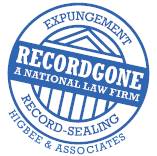A May 22, 2013 ruling by the Minnesota Supreme Court is not welcome news for those who want to have their criminal records expunged.[1] The ruling reverses a recent appellate court decision that allowed the courts to order the expungement of records contained in the Bureau of Criminal Apprehension (BCA) database—which is frequently searched by employers and the public. Despite the ruling, Attorney Mathew Higbee says there are still plenty of good reasons for people to have their records expunged by the courts.
Supreme Court Decides Against Sealing Both Judicial and Executive Records
A month prior to the May 22, 2013 state Supreme Court decision, the Minnesota Court of Appeals departed from case precedent to grant an expungement that included not only the sealing of judicial records, but also the sealing of executive records. Judicial records are those records created by the courts, whereas executive records, within this context, are those records that did not necessarily originate from but are maintained by administrative agencies, such as the Department of Public Safety (DPS) and the BCA in Minnesota. In its decision, the Court of Appeals held that the trial court was correct in ordering expungement of the petitioner’s criminal records maintained by the executive branch.
However, a few weeks ago, the Minnesota Supreme Court reviewed that appellate court decision, and reversed the part with respect to executive branch records. In what would become State v. MDT, the state Supreme Court held that the trial court exceeded the scope of its “inherent authority” to expunge records maintained by the executive branch.[2]
Separation of Powers Doctrine
The Minnesota Supreme Court looked to the separation of powers doctrine, and stated that the judicial branch’s inherent authority is limited to what is necessary to the performance of a judicial function. Reasoning that expungement of the petitioner’s criminal records held in the executive branch is not necessary to the performance of a unique judicial function, the Supreme Court concluded the trial court lacked authority to expunge those records.
Allowing Executive Expungement Could Override Legislative Policy Judgements
The Supreme Court further explained that allowing the expungement of criminal records held in the executive branch would override certain legislative policy judgments. For example, the Legislature provides for expungement of all records, including those maintained by the executive branch, for certain limited criminal records under the expungement chapter, Minn. Stat. ch. 609A. Also, the Minnesota Government Data Practices Act establishes a presumption that government data, which encompass such criminal records, are public. In light of these policies, the Supreme Court determined the Legislature intended not to extend the expungement remedy to include records held in the executive branch. Accordingly, the Minnesota Supreme Court declined to recognize a court’s inherent authority to order expungement of executive branch records, but continued to allow for the expungement of judicial records.
Minnesota Expungement Now Only Applies to Court Records
The most significant implication flowing from this decision is that from now on, when a Minnesota trial court issues an order granting an individual expungement of his criminal record, that expungement only applies to court records. The court’s order would not apply to records that belong to the executive branch, including those retained by the DPS and the BCA.
However, this state Supreme Court decision did not alter the five-factor balancing test that trial courts use in determining whether to grant expungement under their inherent authority. These five factors encompass:
(1) extent to which petitioner has demonstrated difficulties in securing employment or housing as a result of the records sought to be expunged; (2) seriousness and nature of offense; (3) potential risk that petitioner poses and how this affects public’s right to access records; (4) any additional offenses or rehabilitative efforts since the offense, and (5) other objective evidence of hardship, which include difficulties such as the inability to provide financial support to one’s family. [3]
Court Ruling is a Step Backwards for Minnesota Expungement Law
“Essentially, the benefits of expungement of convictions in Minnesota are back to where they were in April 2013, before the appeals case,” says Higbee, whose law firm specializes in expungement.
According to Higbee, people who have had their judicial records expunged do not need to disclose their expunged conviction when applying for a job or admission to an educational program because private employers and schools cannot ask about arrests that did not end in conviction. Therefore, when applying for a new job or to a school, a person with an expunged criminal conviction can honestly answer “no” when asked if he has any prior convictions.
Moreover, if an employer is aware of any related arrests or diversion programs, they cannot use such information in making major employment decisions, including hiring, promotion, or firing. Other major benefits of having one’s judicial records expunged include being able to obtain housing and state licenses successfully.
“Having a record expunged can still mean the difference between getting a job or getting rejected for a job. It would have been nice to have the extra protection of expungement of the BCA records,” says Higbee.
- [1]See State v. MDT, 2013 WL 2220826 (Minn. May 22, 2013).
- [2]Minnesota trial courts may expunge criminal records by statute when the charges were resolved favorably to an individual, or based on the court’s “inherent authority.” The court’s inherent authority to order expungement of criminal records is limited to situations where there is a serious infringement of an individual’s constitutional rights, or when expungement will result in a benefit to him commensurate with the disadvantages to the public and the burden on the court in issuing, enforcing, and monitoring such an order. In this second scenario, the courts use a five-factor balancing test, as mentioned below.
- [3]State v. H.A., 716 N.W.2d 360, 364 (Minn. App. 2006).



